(New York, NY: Feb 20, 2025) Indo-American Press Club (IAPC), the largest organization of media personnel of Indian origin in North America announced a dynamic Team of members to the Board of Directors today. Dr. Indranill Basu Ray – Cambridge, MA will lead this decade-old organization as the Chairman of the BOAD of IAPC. Ginsmon Zacharia, the Founding Chairman of IAPC is the Secretary of BOD. Ajay Ghosh, the Founding President of IAPC, who along with Ginsmon is a permanent member of the BOD, will serve as a member of the BOD.
Dr. Indranill Basu Ray – Chairman, Cambridge, MA
Dr. Indranill Basu Ray | MBBS, MD(Med), DNB (Card), DSc, FACP, FACC is a Cardiologist trained in one of the newer subspecialties called Interventional Cardiac Electrophysiology. Dr. Basu-Ray was a faculty guide at the Massachusetts Institute of Technology (MIT’s) LinQ program in Boston. He is a cardiac electrophysiologist on staff and the present director of cardiovascular research at the Memphis Veterans Medical Center in Memphis, TN, USA. He is also an Adjunct Professor at The School of Public Health, University of Memphis, Memphis, TN, USA.
Dr. Basu-Ray is the Editor of a popular book on Cardiology with over forty authors contributing to it from all over the world. He is the founder and President of the American Academy for Yoga in Medicine, an organization of physicians, scientists, and researchers who work on scientific validation of yoga as an integrative therapy. He is the Editor-in-Chief of the world’s first reference book written by over 75 physicians and researchers worldwide called “The Principle and Practice of Yoga in Cardiovascular Diseases,” published by Springer Nature. Dr. Basu Ray has delivered invited lectures worldwide on the role of Yoga and meditation in preventing and treating cardiovascular diseases. He was awarded a Doctorate in Science (Honoris Causa) by the world’s largest and oldest Yoga University- SVYASA, in Bengaluru, India. He has appeared on multiple television channels in this country and abroad, discussing Yoga as disease prevention. He writes blogs for numerous Indian and US Newspapers.
Ginsmon Zacharia – Board Secretary – NY
Ginsmon P. Zacharia, founding chairman and a permanent member of the IAPC Board of Directors, is the managing director of the Global Reporter Channel. A noted journalist who has made innovations in the field of visual media, he is also the chairman of Jai Hind News, a Malayalam newspaper with editions in the United States and Canada. He is the editor-in-chief of Aksharam magazine, a leading Malayalam magazine in the United States, and President and CEO of the English language magazine Asian Era. Ginsmon, who was the manager of The South Asian Times, a leading English language newspaper in America, started his journalism career 16 years ago by taking charge of the European edition of the Deepika, a Malayalam daily. As the US director of Jai Hind TV, he hosted the first reality show with candidates from all the states in the US. The reality show, attended by hundreds of Malayalees, was telecast in around 250 episodes, helped many amateur singers showcase their talent to the world, and was hailed as a historic first for the Malayalees in North America.
Kamalesh Mehta – NY
Kamlesh Mehta, founder of Forsyth Media Group, the most popular Indo-American English media group in North America, is a member of a prominent Jain family in Rajasthan and started a diamond business in Bombay in 1985. Mehta immigrated to New York in 1986, to expand his business, where he started trading in gemstones and diamonds. Mehta entered the media business in 2008, and his weekly newspaper, ‘The South Asian Times’ for the Indian community, has won several awards. He is also the publisher of Forsyth Media Group’s ‘The Asian Era’. In January 2010, he was appointed director of business and economic development by the Nassau County administration, where he served for five years. In 2009, he became president of the Rotary Club of Hicksville South, NY. In 2015-16, he had the opportunity to become governor of RI District 7255. He has been honored as a leading Rotary donor and has worked for many religious organizations and social causes. He is the founder of the Rajasthan Association of North America and organized the first Indian Day Parade in Hicksville, which started in 2012. Mehta is also the recipient of many lifetime achievement awards and certificates of recognition from various community organizations.
Dr. Mathew Joys – Las Vegas, NV
Well-known writer and columnist in North America, Dr. Matthew Joys, was one of the early members of the IAPC. He has worked in the finance department of the central government in India and has been the director of the Rotaract Club and the national general secretary of the Employees Federation. He also served as executive vice president and secretary to the board of directors of IAPC. Author of ‘Entey Priyey,’ a collection of love poems based on the Bible and the Ten Commandments, and the anthology ‘American Aadukal,’ he spends his time as the executive editor of Jai Hind, a New York-based newspaper, as well as the associate editor of the Express Herald, a member of the editorial board of Nerkazhcha weekly, and the English portal The UNN. He is also the Global Media Chairperson of the Global Indian Council, Inc.
Ajay Ghosh – CT
Ajay Ghosh, the Chief Editor of The Universal News Network (www.theunn.com), graduated with a Master’s Degree in Journalism from Marquette University, Milwaukee, WI in 1998. Before coming to the United States, Ajay was the Chief Editor of The Voice Delhi and contributed articles to several national publications in India. In the United States, starting his journalistic career as a reporter in 1999 for India Post, he worked as the New York Bureau Chief of Indian Reporter and World News and was the New York Bureau Chief of India Tribune published from Chicago. Ajay served as the Executive Editor of NRI Today and was the Bureau Chief of The Indian Express, North American Editions. He was the founding Editor of The Asian Era. Since 2012, Ajay has been serving as the Media Coordinator of the American Association of Physicians of Indian Origin (AAPI). In 2023, he was appointed as the Consultant for Public Relations Content for ITServe Alliance, the largest association of IT Solutions and services organizations in the United States. Ajay is the founder and President of the Indo-American Press Club.
Having a Master’s Degree in Social Work from Delhi University, Ajay served as an Adjunct Faculty at Fordham Graduate School of Social Work from 2006 to 2016. He was an Adjunct Professor at Bridgeport University, where he taught Psychology. In 2019, he was part of a nearly 200-member expedition to Antarctica, the 7th Continent on Earth. Ajay was honored with the Excellence in Reporting Award by the American Association of Physicians of Indian Origin for several years. In 2018, Ajay was honored with the Excellence in Journalism Award by NAMAM, In 2023, he received the prestigious Excellence in Journalism Award by The Kerala Center in New York.
Meena Chittilapilly – Dallas, TX
Meena Chittilappilly is a well-known socio-cultural media activist from Dallas, Texas. Meena, who has been a presenter and newsreader on Asianet for 15 years and later a presenter on Jai Hind TV, is currently working for Flowers TV. A graduate with a degree in analytical economics and business administration, Meena has worked in the field of education for over 20 years and is currently working as a school director in the project management office at ‘Quantiphi’, an international software company. She was also active as the arts and marketing and branding chairperson of the Malayali Engineers Association of North Texas (MEANT), and the president of the Dallas badminton club. Moreover, she has been running the Swarajathi School of Music and Dance since 2001 and is an active organizer and media personality who has been making her mark in the professional theater industry. During her college years, she was the secretary and union councilor of the All-Saints College arts club, Thiruvananthapuram from 1990-92 and presented many programs as an anchor with Doordarshan, the national television channel of India.
CG Daniel – Houston, TX
CG Daniel is a well-known writer and amateur photographer with a large following, especially on social media. He is an environmentalist and a cynophile. He has participated in television panel discussions about American and Indian politics. He is the founder, president, and CEO of the Deepalaya Foundation Inc., USA, a nonprofit charitable organization. He has served the IAPC at various levels, including as chapter president, national vice president, and general secretary.
Parveen Chopra – Vice Chairman – NY
Parveen Chopra, who has been a journalist in the United States for decades, is the managing editor of the South Asian Times. He also works for the interfaith journal ‘One World Under One God’. Parveen holds a master’s degree in mass communication from Punjab University and has also worked for India Today magazine. Parveen is also the founder of Spiritual Magazine Life Positive and was a former president of IAPC.
Dr. P V Baiju – Edmonton, Canada
A well-known Canadian author and columnist. P.V. Baiju is a noted journalist who has presented the issues of Canadian Malayalees to the world through his columns.
Jacob Kudasanad – Houston
Jacob Kudassanad (Kuruvila), the founding Vice President of the Houston chapter of Indo American Press Club, is a long-standing member of the organization. Through his time in IAPC, he has also been able to serve as the National Secretary in 2018 and National Executive Vice President in 2019.
He began his journalistic activities in his college days, where he got the chance to be the Alleppy district representative for All Kerala Sahitya Sangam. He also served as the editor for his college’s magazine, as well as various other local magazines. During his time as editor, he was able to harness his creativity and publish many short stories and poems in printed media. More recently, he has contributed to news publications for the Malayalam News Media.
Since immigrating to the US in 1985, Jacob has been an active and committed member of various cultural and religious organizations. He joined the World Malayalee Council in 1995 and has held several positions, including President, Chairman, and Secretary, at the American Region and Houston Province levels. Additionally, he served as the General Secretary of the Malayalee Association of Greater Houston in 2000. His dedication has persisted throughout the years, as he serves as the Vice president–admin in the American Region. He was able to serve as the Houston Bureau Coordinator for Reporter TV USA.
Finally, he is the current World Malayalee Council Chairman (America Region) and has been a member of St. Thomas Orthodox Cathedral Houston’s Golden Jubilee Souvenir Committee Chair. He was blessed with the opportunity to serve in multiple capacities. He hopes to continue to be a contributing member of the Indo–American community in the coming years.
Reji Philip – Philadelphia
Reji Phillip, a reporter for the Global Reporter channel, is a well-known journalist. He holds a master’s degree in journalism and manages the creative department in several visual and online media.
Jacob Abraham – NY
Jacob Abraham is the CEO of Hedge Events and the publisher of Hedge News. With a keen eye for detail and a strategic mindset, Jacob has successfully led Hedge Events to become a premier event management company known for its innovative and high-quality events. His leadership has also elevated Hedge News, a prominent publication that offers in-depth analysis and insights into the financial world. Jacob’s expertise and dedication have made him a respected figure in the industry, continually pushing the boundaries of excellence in event management and financial journalism.
Dr. Renee Mehra – Chicago
Dr. Renee Mehra has been working in the media since 1990. Renee is the host of the show ‘Renee Report’, which provides media coverage on politics, health, human interest stories, fashion, film, theater, and current affairs. She has been the president of Reenbow Media, an advertising, broadcasting, and public relations company since 2010. She acted as associate director of external affairs department NYC health, hospitals/Queens from 2014 to 2017. After earning a BA in broadcast journalism from the University of New York, and an MA in political management and public relations from George Washington University, she received her doctorate from Walden University.
Ashly Joseph – Canada
As the editor-in-chief of Jai Hind News, a popular Malayalam newspaper in North America, Ashly Joseph served as a member of the board of directors of the IAPC. He began his journalistic career in 2003 as a reporter for the ‘Malayalee Manas’, a Florida-based newspaper, and was the editor-in-chief of ‘Yatra’, a 2006 magazine aimed at new immigrants. From 2007 to 2009 he was the managing editor of ‘Aksharam’, a leading Malayalam magazine in the United States. Ashley’s numerous articles on social, political, and literary issues have already been published in print and online media. Ashly is an executive member of the Edmonton Catholic Association and is the founder of several associations and clubs. He came to the United States in 1999 and is known among the Malayalees as a great organizer. Ashley, who now works for the Canadian postal department, was the coordinator of the International Volleyball Tournament in Niagara. A graduate of Botany from Nirmala College, Muvattupuzha, Ashley was active in politics and society during his studies before he graduated with a degree in hotel management and moved to the United States.
Joseph John – Calgary, CAD
Joseph John is a Canadian Freelance Guild (CFG) and a Calgary-based freelance reporter who is president of the Alberta Chapter of the Indo-American Press Club. Joseph has also been the president of the Malayalee Cultural Association of Calgary, which has more than 4,000 members. Joseph John, founder, and organizer of ‘Kavya Sandhya’, which promotes literary and cultural activities for children in Kerala, is also a volunteer reporter for the Global Reporter section of the Reporter Malayalam channel. He is the founder and organizer of the ‘NAMMAL’ (North American Media Center for Malayalam Art and Literature) association with media support from news web portals in three Indian languages — ‘Nammal Online’ in Malayalam, ‘Namathu Tamil’ in Tamil, and ‘Namaste World’ in English. In addition, he serves as the national coordinator of ‘Nammalude Pallikoodam’, which conducts free Malayalam online classes with the help of volunteers from various provinces. He is the secretary of the National Association of Corrosion Engineers and for the Association of Materials Protection and Performance, Calgary Chapter of the U.S. & Canada Northern Area.
Korason Varghese – NY
Writer and journalist from New York. His column “Valkannadi” is published in media such as Manorama. He has published two collections of articles. He has done interviews through Reporter TV and Kalavedi TV. He is present in cultural and social spaces. He has worked as a Wise Men International Club public relations officer and as a UN representative. He has received the 2017 Emalayali Popular Writer Award, the 2022 Fokana Literary Award, the Kalavedi Literary Award, and the 2023 IAPC Social Media Influencer Award. Korason is also a cartoonist living in Long Island.
In the introduction to the collection of essays by Korason, Valkannadi, renowned writer Benyamin writes that the views of society can be accurately reflected through the unbiased Valkannadi. The writer, who has been living as a Malayali immigrant in America for a long time, has a passion for language and social commitment that seriously enhances the value of Valkannadi. – Benyamin.
Over the past five years, Reporter TV and Kalavedi TV have been a part of Korason’s backroom staff through several in-depth interviews. A.J. Philip, a veteran journalist who has been the editor of newspapers like The Indian Express and The Tribune, said, “I found Korason to be a very capable and cheerful interviewer. You can tell that there was proper homework behind it. The questions were quite probing but not intimidating. I wish television anchors in India were like Korason,” A.J. Philip wrote in his column.
He worked as a columnist, cartoonist, and editor in the newspapers Kairali and Jai Hind, published in New York. He was the editor of Fokana’s Haritham Smaranika, held in Albany, and served as the executive president and general secretary of the Indo-American Press Club. He managed a column in the leading online media Marunadan Malayali for more than five years.
Worked as a Senior Analyst for the Independent Budget Review for the Nassau County Government of New York. Experience in the formulation of basic political policy in the United States. Worked as a Finance Manager for the New York City Government for a quarter of a century.
Joji Kavanal – NY
Joji Kavanal is the treasurer of the Malankara Archdiocese of North America and one of the founding directors of the Indo-American Press Club. He also served as the director of Jaihind TV USA from 2010 to 2013. He was chief editor of Malankara Deepam annual publication of the Malankara Archdiocese
He practiced law in the Kerala High Court and is also a treasurer of the Kerala High Court Advocates Association. His extensive experience and dedication have significantly contributed to his leadership roles within the diaspora community, bridging cultural and professional ties between India and North America.
Anil Augustine – Atlanta
Anil Augustine is an Atlanta, GA resident, professionally a Public Relations (PR) management consultant in the International Trade, Media, and Human Resource domains. Currently, he serves as the Managing Director of an enterprise advisory firm www.AuguDEST.com, which assists global entrepreneurs, in reaching expertise in bilateral global trade, Media, PR & HR avenues. He is the joint promoter at the marketplace aggregator – Rural Agricultural Development Technology and Research. Anil has served on the Henry County, GA School System’s Advisory Council Board Since 2016 and the Eagle’s Landing Middle School as President of the PTO Board since 2019. As a Public Relations Officio, Anil is involved with Global
Indian Council, a diaspora advocacy institution, and World Malayalee Council, the global fraternity of Kerala diaspora. He serves on the Executive Board of the Federation of Malayalee Associations in Americas (FOMAA) immigration advocacy initiative – L.i.F.e, FOMAA Legal Immigration Federation, Anil served as the National Vice-president of IAPC and enthusiastically contributed to the International Media Convention in 2018 as the IAPC Atlanta Chapter Advisory Board member.
Dr.Eapen Daniel – Philadelphia
Dr. Eapen Daniel, a distinguished academic and community leader, resides in Pennsylvania, near the Philadelphia area. He graduated with a degree in Botany from Mar Thoma College in 1973 and later earned an M.Sc. from S.B. College, Changanacherry, securing a university rank. He began his career as a Botany professor at Mar Thoma College (Kerala University), where he taught until 1982.
After moving to the United States, Dr. Daniel pursued graduate studies at Texas Tech University and worked at the Texas Health Sciences Center until 1986. He then relocated to Pennsylvania, where he studied and worked at the University of Pennsylvania, earning his Doctorate. He continues to contribute to the university in the field of Genomics Integration.
Beyond academia, Dr. Daniel has been an influential figure in civic and religious circles in the Philadelphia Tri-State area for over 30 years. He has served as the President of PAMPA, a leading Malayalee association, and currently leads the Indian Overseas Congress (IOC) PA Chapter. His dedication to the Mar Thoma Church is notable, having served as Chief Editor of The Mar Thoma Messenger for 12 years and as a long-time youth activity coordinator and senior advisor for various church organizations.
Dr. Daniel’s contributions have been recognized with numerous achievement awards from civic and religious organizations, underscoring his lifelong commitment to community service and leadership
 Indo-American Press Club (IAPC) is a fast-growing syndicate of print, visual, online, and electronic media journalists and other media-related professionals of Indian origin working in the United States, Canada, and Europe. IAPC is committed to enhancing the working conditions of our journalists, exchanging ideas, and offering educational and training opportunities to our members, aspiring young journalists, and media professionals around the globe; and also by honoring media people for their excellence, and for bringing positive changes through their dedicated service among the community. Today IAPC envisages its vision through collective efforts and advocacy activities through its 15 Chapters across the US and Canada, in the larger public sphere. Visit www.indoamericanpressclub.com to learn more.
Indo-American Press Club (IAPC) is a fast-growing syndicate of print, visual, online, and electronic media journalists and other media-related professionals of Indian origin working in the United States, Canada, and Europe. IAPC is committed to enhancing the working conditions of our journalists, exchanging ideas, and offering educational and training opportunities to our members, aspiring young journalists, and media professionals around the globe; and also by honoring media people for their excellence, and for bringing positive changes through their dedicated service among the community. Today IAPC envisages its vision through collective efforts and advocacy activities through its 15 Chapters across the US and Canada, in the larger public sphere. Visit www.indoamericanpressclub.com to learn more.







 Inspired by the AAPI New Jersey Chapter, the AAPI “Share a Blanket” Project was launched in 2019 with the objective of sharing warmth during the winter months with those in need. Since its inception, this initiative has become a cherished tradition, and we are proud to see that other local chapters have embraced similar efforts in their communities,” added Dr. Kathula.
Inspired by the AAPI New Jersey Chapter, the AAPI “Share a Blanket” Project was launched in 2019 with the objective of sharing warmth during the winter months with those in need. Since its inception, this initiative has become a cherished tradition, and we are proud to see that other local chapters have embraced similar efforts in their communities,” added Dr. Kathula. year,” said Dr. Raghu Lolabhattu, Chair, Share-The-Warmth program. “The winter season is a time for us to care and share again! Over the last few years, AAPI, along with several local chapters and some of our members, made tremendous efforts and helped numerous needy people by donating blankets, and we are proud to say that this was very well received by the targeted communities.”
year,” said Dr. Raghu Lolabhattu, Chair, Share-The-Warmth program. “The winter season is a time for us to care and share again! Over the last few years, AAPI, along with several local chapters and some of our members, made tremendous efforts and helped numerous needy people by donating blankets, and we are proud to say that this was very well received by the targeted communities.” Dr. Raj Bhayani, Secretary of AAPI, urged “all AAPI members to carry on this program in the coming years as well and make AAPI and our local organizations proud. We request that every one of you make a generous donation for this fund, and your contribution would surely give a great comfort to a needy person.”
Dr. Raj Bhayani, Secretary of AAPI, urged “all AAPI members to carry on this program in the coming years as well and make AAPI and our local organizations proud. We request that every one of you make a generous donation for this fund, and your contribution would surely give a great comfort to a needy person.” With active participation, collaboration, and coordination by community and business leaders from across the 5 continents, the Global Malayalee Festival is shaping up to be an exciting celebration of the culture, traditions, and accomplishments of the Global Malayalee community at the heart of Kerala.
With active participation, collaboration, and coordination by community and business leaders from across the 5 continents, the Global Malayalee Festival is shaping up to be an exciting celebration of the culture, traditions, and accomplishments of the Global Malayalee community at the heart of Kerala. contribute to a brighter, more sustainable future for humanity.
contribute to a brighter, more sustainable future for humanity.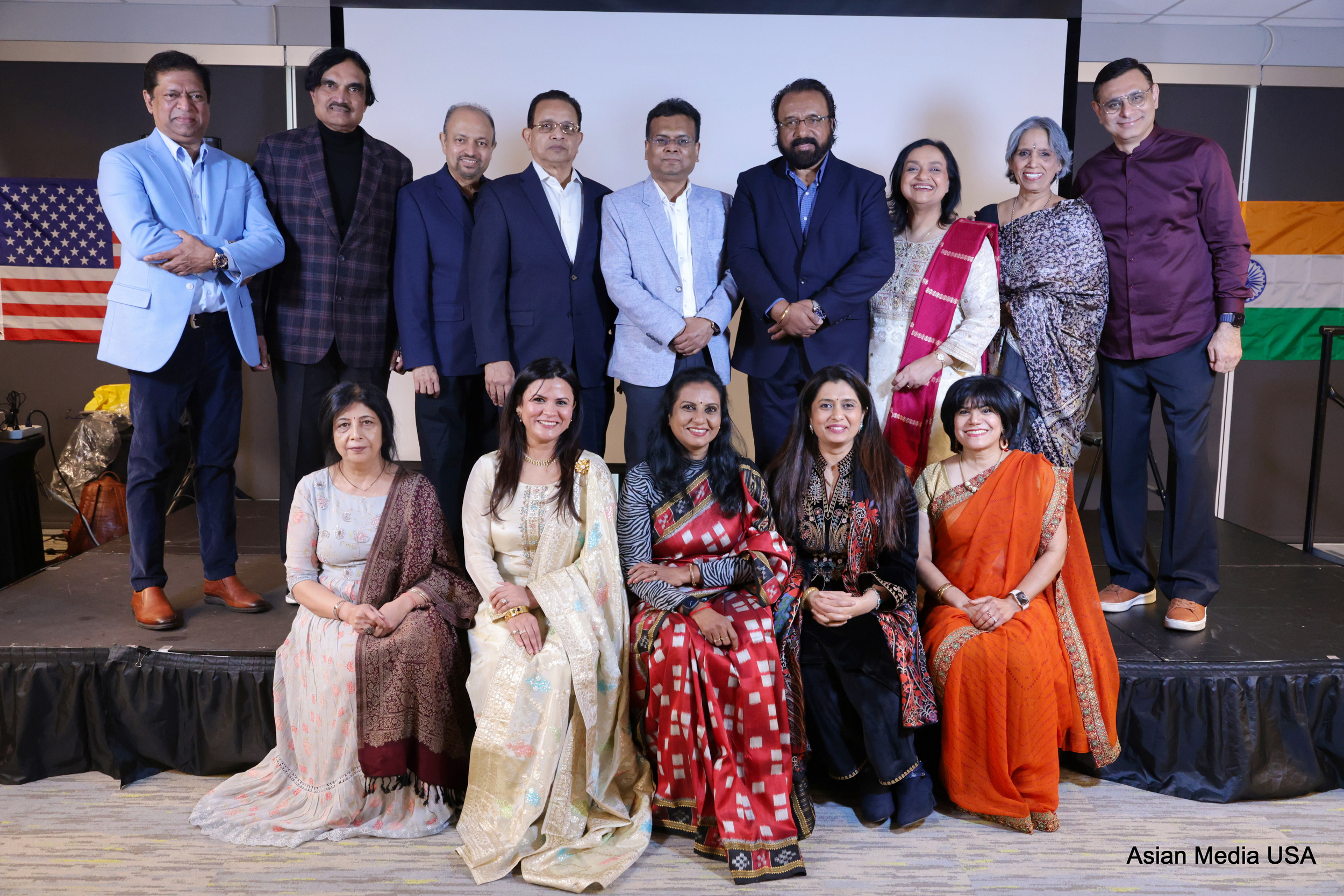 The event commenced at 5:30 PM with an engaging Meet & Greet, where attendees, donors, and supporters connected over shared goals and commitments. Hosted by the eloquent Anjali Mohanty, the evening was structured to inspire, inform, and invigorate the spirit of giving.
The event commenced at 5:30 PM with an engaging Meet & Greet, where attendees, donors, and supporters connected over shared goals and commitments. Hosted by the eloquent Anjali Mohanty, the evening was structured to inspire, inform, and invigorate the spirit of giving.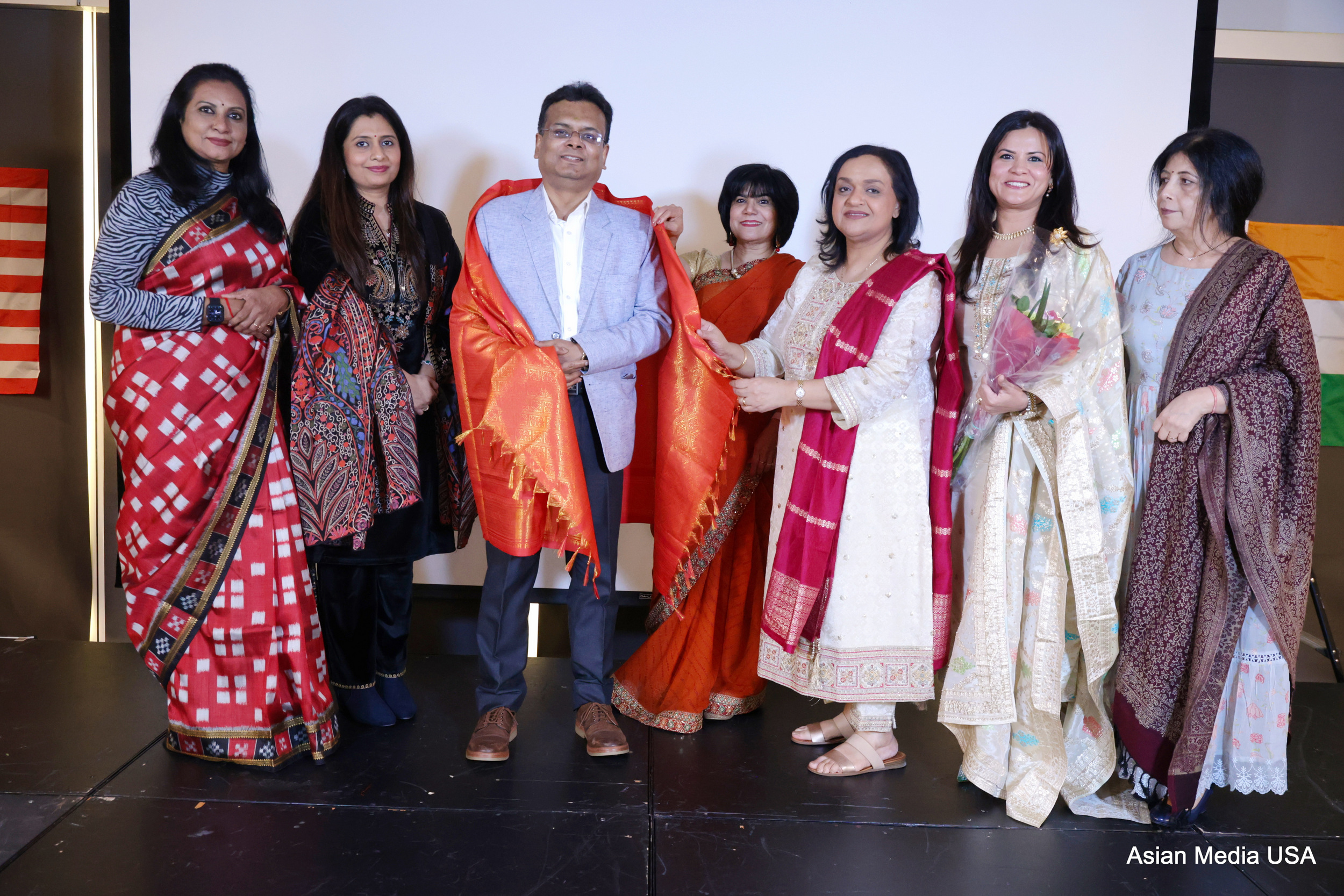 in science, technology, engineering, and mathematics among teachers & young minds. Dr. Shailaja, through her key role at CSIR, works closely with Dr. Jayaraman to drive STEM workshops and promotion efforts across India, ensuring the initiative’s reach and impact continue to grow globally.
in science, technology, engineering, and mathematics among teachers & young minds. Dr. Shailaja, through her key role at CSIR, works closely with Dr. Jayaraman to drive STEM workshops and promotion efforts across India, ensuring the initiative’s reach and impact continue to grow globally.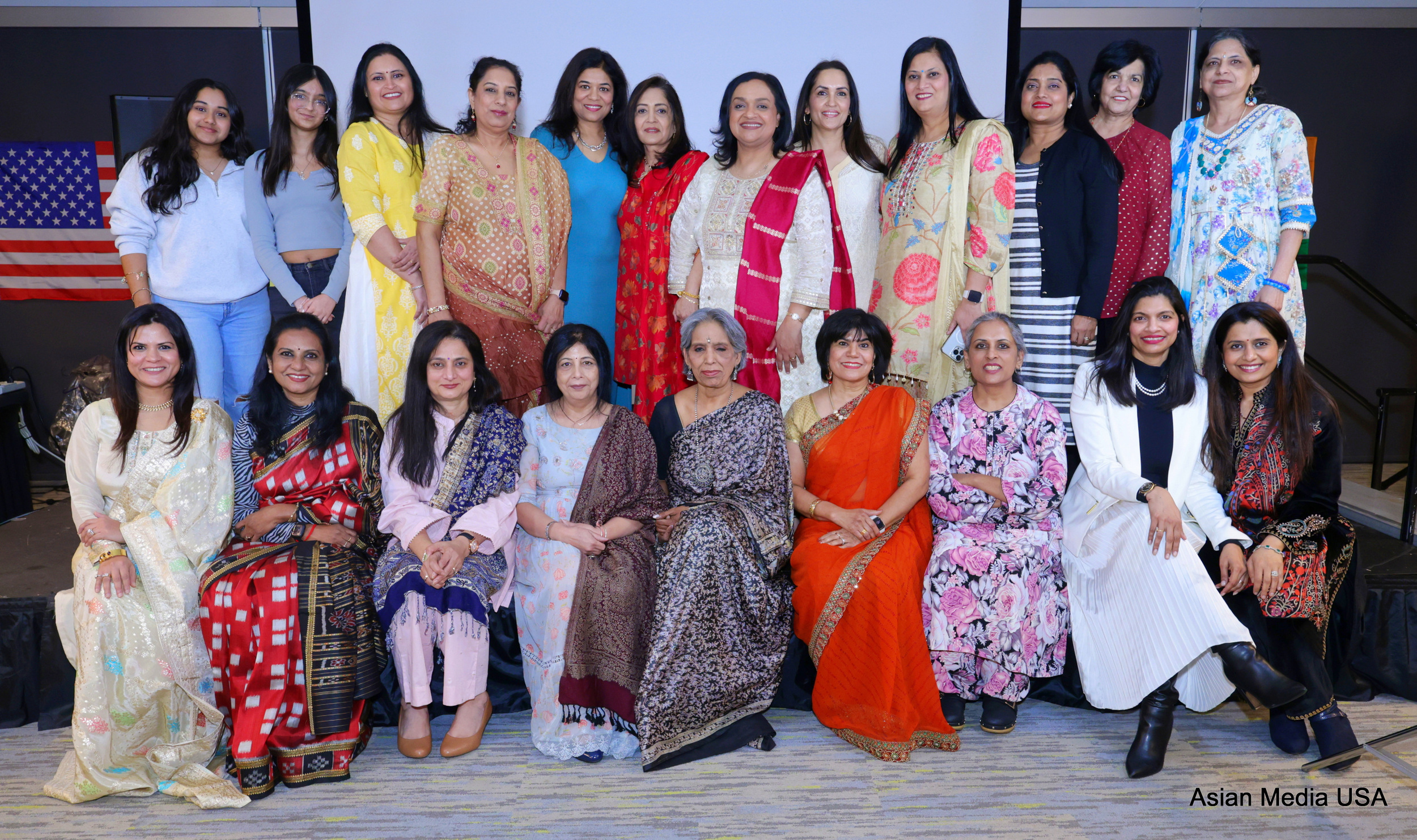 The real catalyst for improving the quality of education would be STEM Training for teachers, Dr. Shailaja emphasized the 5 important focus areas of Ignite Stem Passion training programs namely, Science teacher to now step in role of technology teacher, enhance her skills by participating in govt research projects, improve scientific temperament by storytelling and hands on demonstration of experiments along with higher focus on climate change and ethical use of science & technology for betterment of mankind.
The real catalyst for improving the quality of education would be STEM Training for teachers, Dr. Shailaja emphasized the 5 important focus areas of Ignite Stem Passion training programs namely, Science teacher to now step in role of technology teacher, enhance her skills by participating in govt research projects, improve scientific temperament by storytelling and hands on demonstration of experiments along with higher focus on climate change and ethical use of science & technology for betterment of mankind.



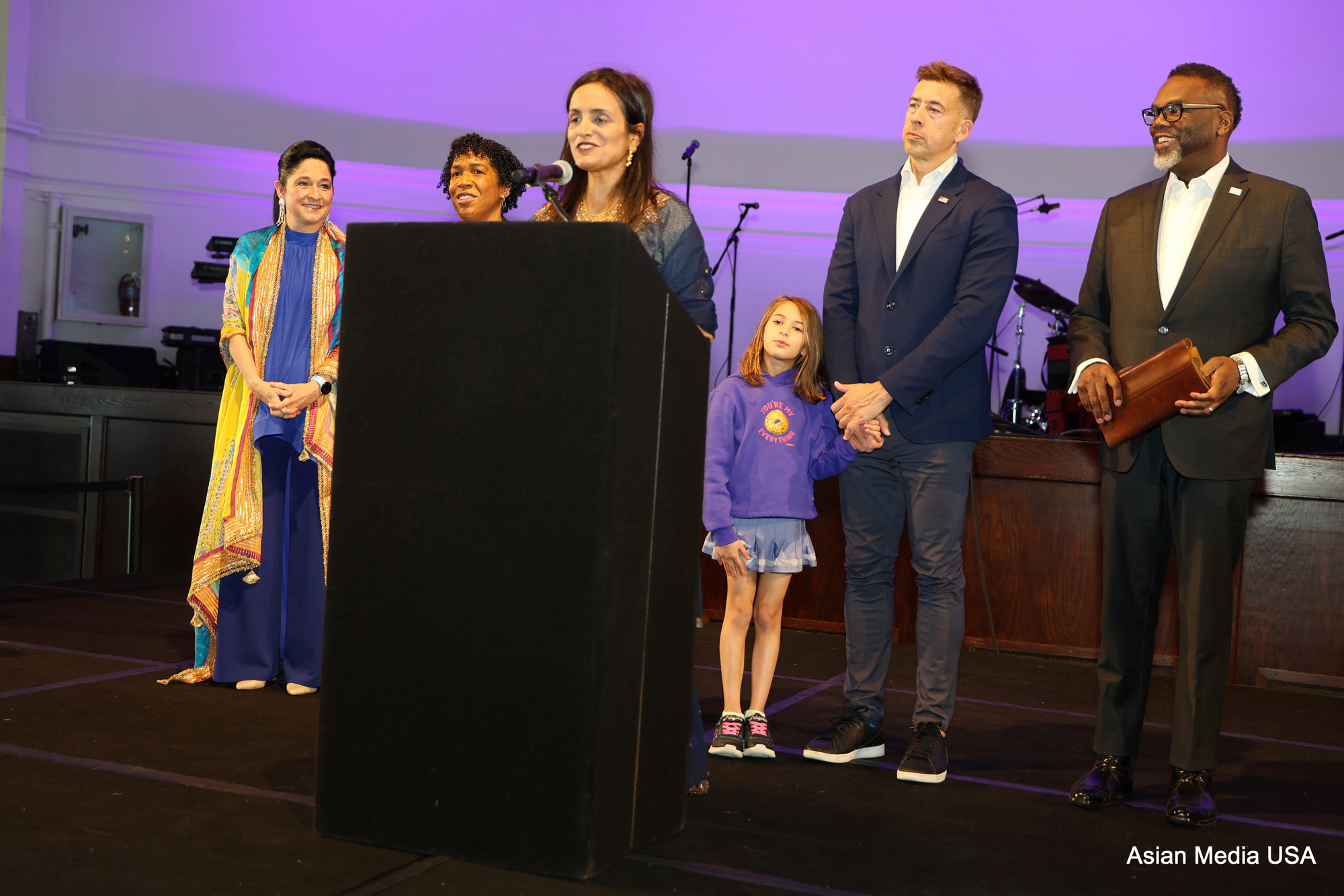
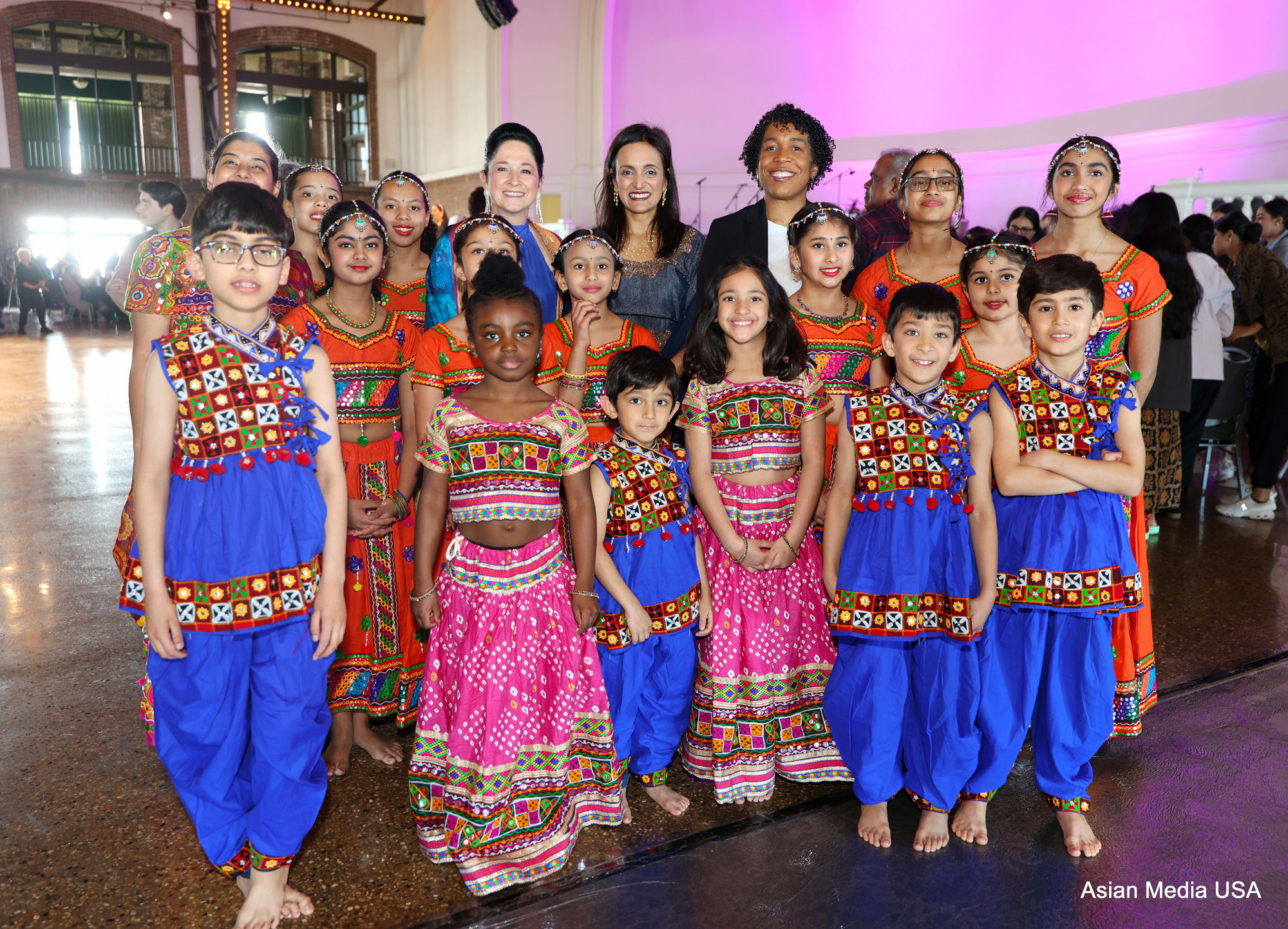
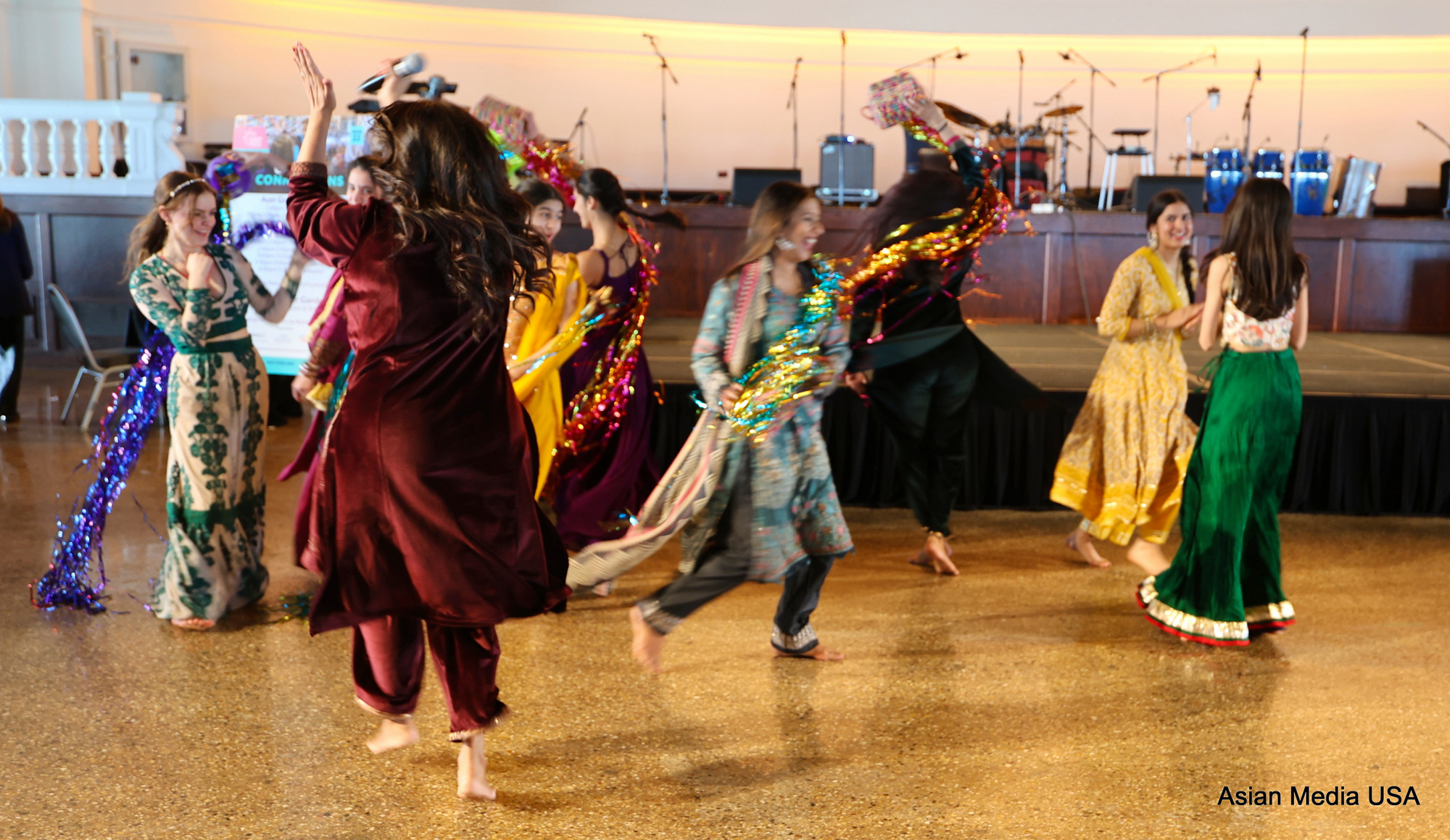
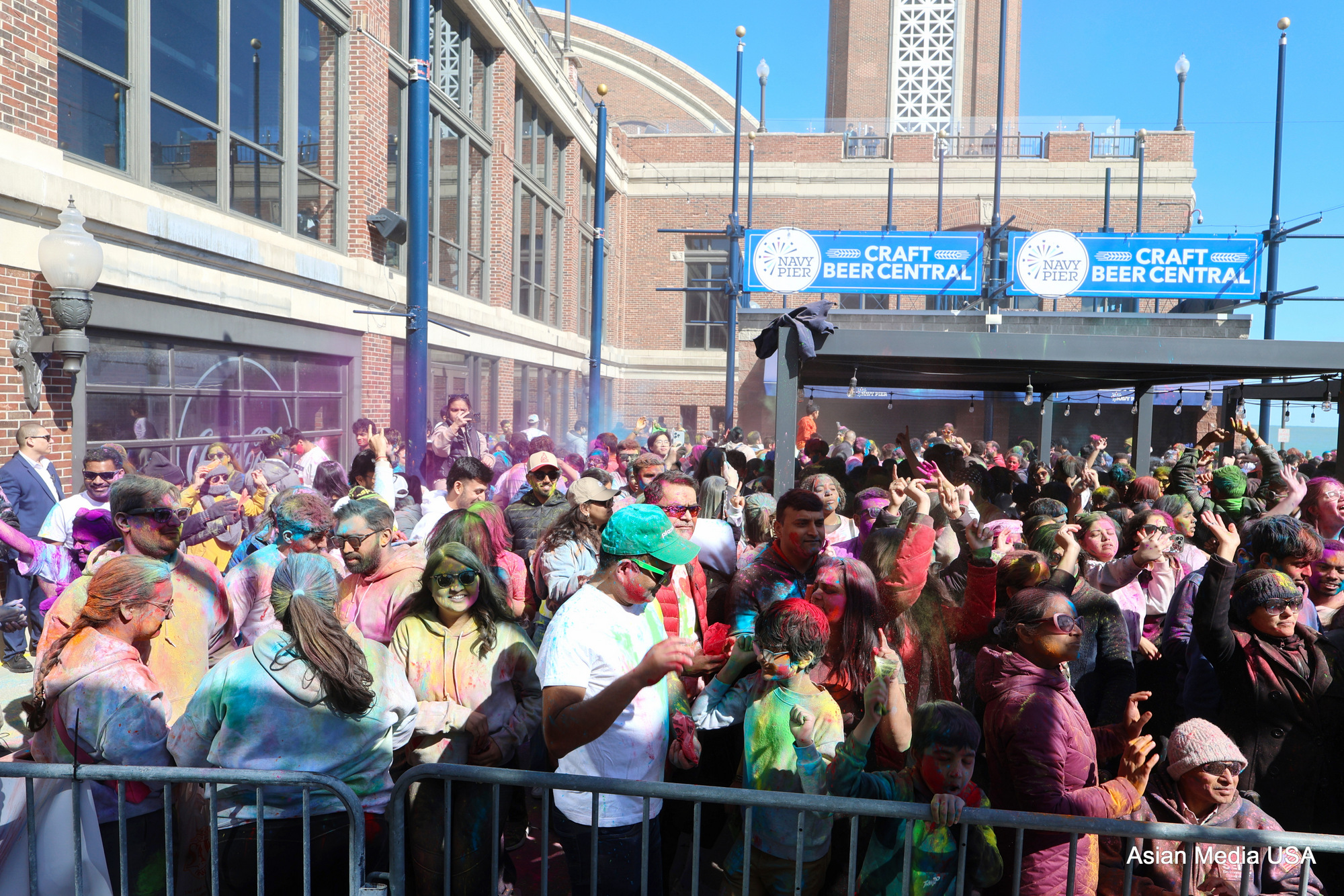
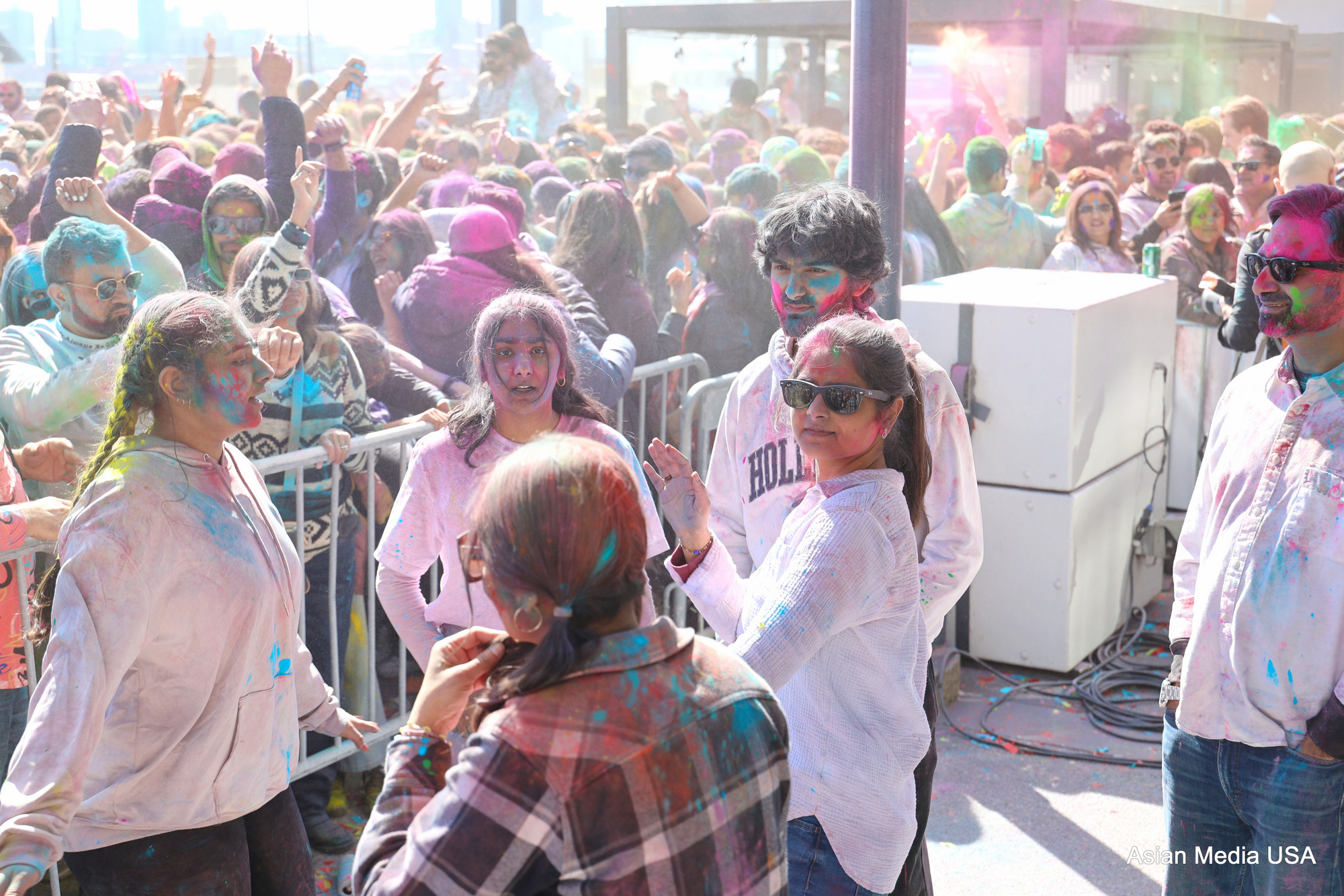
 Sunil Shah has set a remarkable benchmark in leadership, inspiring countless individuals to follow in his footsteps. His vision, dedication, and ability to unite people have made FIA a powerhouse of growth and empowerment. Under his guidance, FIA has flourished as a platform that fosters leadership, community service, and cultural pride. His unwavering commitment to uplifting both men and women has driven a historic surge in 324 memberships.
Sunil Shah has set a remarkable benchmark in leadership, inspiring countless individuals to follow in his footsteps. His vision, dedication, and ability to unite people have made FIA a powerhouse of growth and empowerment. Under his guidance, FIA has flourished as a platform that fosters leadership, community service, and cultural pride. His unwavering commitment to uplifting both men and women has driven a historic surge in 324 memberships. community engagement. Every year, FIA elections open doors for passionate individuals to step into influential roles, be it as the President, Vice President, Treasurer, General Secretary, Cultural Secretary, Creative Director, Public Relations, Directors and Advisory Board Directors positions. This dynamic environment nurtures leadership skills, fosters teamwork, and empowers members to take charge of initiatives that shape the future of the Indian American community. Under the inspiring leadership of Sunil Shah, FIA has become a training ground for emerging leaders who wish to make a real impact socially, politically, and culturally. Those who join FIA not only gain a title but also the ability to drive change, making it the most sought-after organization for visionary individuals.
community engagement. Every year, FIA elections open doors for passionate individuals to step into influential roles, be it as the President, Vice President, Treasurer, General Secretary, Cultural Secretary, Creative Director, Public Relations, Directors and Advisory Board Directors positions. This dynamic environment nurtures leadership skills, fosters teamwork, and empowers members to take charge of initiatives that shape the future of the Indian American community. Under the inspiring leadership of Sunil Shah, FIA has become a training ground for emerging leaders who wish to make a real impact socially, politically, and culturally. Those who join FIA not only gain a title but also the ability to drive change, making it the most sought-after organization for visionary individuals. These individuals embody FIA’s ethos of leadership and commitment. Their years of service reflect a deep understanding of our community’s needs—be it education, immigration support, or economic opportunity. Electing them isn’t just a vote for individuals; it’s a vote for a stronger, more represented Asian Indian community. Their success ensures our children’s future, our businesses’ prosperity, and our culture’s endurance.
These individuals embody FIA’s ethos of leadership and commitment. Their years of service reflect a deep understanding of our community’s needs—be it education, immigration support, or economic opportunity. Electing them isn’t just a vote for individuals; it’s a vote for a stronger, more represented Asian Indian community. Their success ensures our children’s future, our businesses’ prosperity, and our culture’s endurance. The oath ceremony commenced with the singing of the American and Indian national anthems by Bina Sabapthy, Jyoti Gupta, and Roopam Maini, followed by a graceful Ganesh Vandana performance by Hamsaasya School of Dance. Harsh Vyas and Jasbir Jay Singh served as emcees for the evening.
The oath ceremony commenced with the singing of the American and Indian national anthems by Bina Sabapthy, Jyoti Gupta, and Roopam Maini, followed by a graceful Ganesh Vandana performance by Hamsaasya School of Dance. Harsh Vyas and Jasbir Jay Singh served as emcees for the evening. Wasil, Harsh Vyas, Nilima Madaan; Treasurer: Dr. Bal K. Gilja; Secretary: Dr. Sharad Kothari; Members-at-Large: Anju Sharma, Bhavana Sharma, Deepak Bansal, Deepika Modi, Dr. Narendra Lodha, Dr. Sumita Sengupta, Dr. Usha Bansal, Gobind Bathija, Jay Jasbir Singh, Jyoti Gupta, Kiran Reddy, Parvathala, Narinder Kapoor, Navneet Agarwal, Nick Garg, Nutan Roongta, Roopam Maini, Sanju Sharma, Surin Manaktala, Swati Vaishnav, and, Satnam Singh Parhar.
Wasil, Harsh Vyas, Nilima Madaan; Treasurer: Dr. Bal K. Gilja; Secretary: Dr. Sharad Kothari; Members-at-Large: Anju Sharma, Bhavana Sharma, Deepak Bansal, Deepika Modi, Dr. Narendra Lodha, Dr. Sumita Sengupta, Dr. Usha Bansal, Gobind Bathija, Jay Jasbir Singh, Jyoti Gupta, Kiran Reddy, Parvathala, Narinder Kapoor, Navneet Agarwal, Nick Garg, Nutan Roongta, Roopam Maini, Sanju Sharma, Surin Manaktala, Swati Vaishnav, and, Satnam Singh Parhar. She also emphasized the importance of youth involvement in AIA activities and fostering young leadership, saying, “We will encourage and induct young leaders who have grown up with our motto of ‘Indian Heritage and American Commitment’ and have great potential to shape the future of AIA.”
She also emphasized the importance of youth involvement in AIA activities and fostering young leadership, saying, “We will encourage and induct young leaders who have grown up with our motto of ‘Indian Heritage and American Commitment’ and have great potential to shape the future of AIA.” played a pivotal role in AIA-NY’s success. The evening concluded with a thank-you note from Treasurer Dr. Bal K. Gilja and Secretary Dr. Sharad Kothari, followed by a celebratory dinner. A special plaque was presented to the outgoing President of AIA-NY, Dr. Jagdish Gupta, in recognition of his service and dedication.
played a pivotal role in AIA-NY’s success. The evening concluded with a thank-you note from Treasurer Dr. Bal K. Gilja and Secretary Dr. Sharad Kothari, followed by a celebratory dinner. A special plaque was presented to the outgoing President of AIA-NY, Dr. Jagdish Gupta, in recognition of his service and dedication. an unwavering commitment to fostering connections, promoting cultural understanding, and supporting community well-being.
an unwavering commitment to fostering connections, promoting cultural understanding, and supporting community well-being.





 Australia’s fastest emerging new city. In 2010 he was recognized as the World’s Best Master Community Planner by the International Real Estate Federation. An iconic entrepreneur, he was declared as one of Queensland, Australia’s 50 greatest thinkers of all time, by Newscorp in 2014. Maha, supported by three levels of Government and private capital, has invested nearly $12 billion dollars in Greater Springfield’s infrastructure and construction. His city-building project grows by $600 million annually, while contributing social and economic value to the Queensland and Australian economies.
Australia’s fastest emerging new city. In 2010 he was recognized as the World’s Best Master Community Planner by the International Real Estate Federation. An iconic entrepreneur, he was declared as one of Queensland, Australia’s 50 greatest thinkers of all time, by Newscorp in 2014. Maha, supported by three levels of Government and private capital, has invested nearly $12 billion dollars in Greater Springfield’s infrastructure and construction. His city-building project grows by $600 million annually, while contributing social and economic value to the Queensland and Australian economies. Mr. Shaheen Majeed, Shaheen has held diverse roles, including sales, supply chain management, manufacturing, regulatory compliance, and global marketing. His innovative global strategies have expanded the company’s reach across multiple continents. For three decades, he has shaped Sabinsa into a global leader in healthcare ingredients. Some achievements include ensuring the company’s adherence to quality manufacturing and regulatory standards, guiding numerous clinical studies, and launching products that are category leaders. He holds 75 US & International patents and has authored over 40 peer-reviewed publications, showcasing his dedication to advancing scientific research and product innovation.
Mr. Shaheen Majeed, Shaheen has held diverse roles, including sales, supply chain management, manufacturing, regulatory compliance, and global marketing. His innovative global strategies have expanded the company’s reach across multiple continents. For three decades, he has shaped Sabinsa into a global leader in healthcare ingredients. Some achievements include ensuring the company’s adherence to quality manufacturing and regulatory standards, guiding numerous clinical studies, and launching products that are category leaders. He holds 75 US & International patents and has authored over 40 peer-reviewed publications, showcasing his dedication to advancing scientific research and product innovation. currently Dean, Engineering at University of Southern Queensland. He is an outstanding researcher with global recognition in the field of Bio-Manufacturing. His track record of 700 publications, 62 Ph.D successful supervisions, $20M research funding and number of awards including Order of Australia Medal (OAM) and Researcher of the Year in 2020 are true reflection of his accomplishments. In addition to number of Presidential roles in various community organisations, he served as Chairperson, Science and Technology Council, GOPIO International for a decade.
currently Dean, Engineering at University of Southern Queensland. He is an outstanding researcher with global recognition in the field of Bio-Manufacturing. His track record of 700 publications, 62 Ph.D successful supervisions, $20M research funding and number of awards including Order of Australia Medal (OAM) and Researcher of the Year in 2020 are true reflection of his accomplishments. In addition to number of Presidential roles in various community organisations, he served as Chairperson, Science and Technology Council, GOPIO International for a decade. Mr. Rohit Vyas is currently the longest serving broadcast and print journalist of Indian origin in the United States. His nearly five decades long career has focused on the Indian Diaspora community worldwide as well as international affairs and global diplomacy. Most recently he was the News Director, Principal News Anchor and Senior Vice President of TV ASIA (USA). He is now also an acclaimed documentary filmmaker.
Mr. Rohit Vyas is currently the longest serving broadcast and print journalist of Indian origin in the United States. His nearly five decades long career has focused on the Indian Diaspora community worldwide as well as international affairs and global diplomacy. Most recently he was the News Director, Principal News Anchor and Senior Vice President of TV ASIA (USA). He is now also an acclaimed documentary filmmaker. GOPIO Community Service Award, 2025. She has served the Indian Diaspora and the Indian High Commission with commitment and passion, winning the trust and confidence of the community and building strong connections with government and non-government stakeholders.
GOPIO Community Service Award, 2025. She has served the Indian Diaspora and the Indian High Commission with commitment and passion, winning the trust and confidence of the community and building strong connections with government and non-government stakeholders. SUNY, has over four decades of global higher education experience at various universities and colleges, focusing on domestic and international student success, mentorship, and community empowerment. As Executive Vice President of GOPIO Manhattan, he leads community service programs in the U.S. and India, supporting Indian students in the US and training hundreds of teachers and women in leadership, technology, spoken English, and fashion design skills.
SUNY, has over four decades of global higher education experience at various universities and colleges, focusing on domestic and international student success, mentorship, and community empowerment. As Executive Vice President of GOPIO Manhattan, he leads community service programs in the U.S. and India, supporting Indian students in the US and training hundreds of teachers and women in leadership, technology, spoken English, and fashion design skills. Harmohan Singh Walia is an engineer, politician, radio news-reader, poet, author, community leader, Olympic torch-bearer and now voluntary community photographer, who bring smile on people’s faces. Has covered over 5000 community events in the last 15 years with free photography. Served the Indian Diaspora community as Founder and President of GOPIO-Sydney Northwest Chapter and GOPIO International Coordinator for Oceania Region.
Harmohan Singh Walia is an engineer, politician, radio news-reader, poet, author, community leader, Olympic torch-bearer and now voluntary community photographer, who bring smile on people’s faces. Has covered over 5000 community events in the last 15 years with free photography. Served the Indian Diaspora community as Founder and President of GOPIO-Sydney Northwest Chapter and GOPIO International Coordinator for Oceania Region.


 Deputy Commissioner Dilip Chauhan, a strong advocate for the South Asian community, highlighted the significance of this honor, stating, “Bawa Jain’s lifelong dedication to peace and interfaith harmony has had a profound impact not just in New York City, but globally. His leadership exemplifies the values of unity, diversity, and mutual respect that we strive to uphold.”
Deputy Commissioner Dilip Chauhan, a strong advocate for the South Asian community, highlighted the significance of this honor, stating, “Bawa Jain’s lifelong dedication to peace and interfaith harmony has had a profound impact not just in New York City, but globally. His leadership exemplifies the values of unity, diversity, and mutual respect that we strive to uphold.”
 Several distinguished political and community leaders, IAF Board of Trustees, Members, Volunteers, supporters and audience graced the occasion, applauding the distinguished accomplishments of women honorees. Several Board of Trustees and community leaders in presence included Dr Bhupendra Patel, Mukund Mehta (Indo-American Senior Citizens of NY), Jasbir (Jay) Singh, Anil and Sunil Jain (Vass Pipe), Dr. Nitin Doshi (Doshi Diagnostics), Beena Kothari (President-AIA), Dr N Kukar, Dr Jagdish Gupta, Flora Parekh (President – Gift of Life USA), Dr. Bhavani Srinivasan (AAPIQLI), Ravi Bhooplapur (Xaviers Medical College), Shashi Malik (SEVA Center for Humanity), Vimal Goyal & Deepak Bansal (IDPUSA), Rotary Club, Lions Club, Sandy Bhatia (Flushing Bank), Rizwan Quereshi (HAB Bank), Dr. Mamta Shaha, Kalpana Patel (UCI), Sudhir & Swati Vaishnav, Vijay Goswamy, Anju & Sanju Sharma (Registration), Dr. Prachi Dua, Beena Kothari and team produced Souvenir Journal, several past honorees and many other organization leaders.
Several distinguished political and community leaders, IAF Board of Trustees, Members, Volunteers, supporters and audience graced the occasion, applauding the distinguished accomplishments of women honorees. Several Board of Trustees and community leaders in presence included Dr Bhupendra Patel, Mukund Mehta (Indo-American Senior Citizens of NY), Jasbir (Jay) Singh, Anil and Sunil Jain (Vass Pipe), Dr. Nitin Doshi (Doshi Diagnostics), Beena Kothari (President-AIA), Dr N Kukar, Dr Jagdish Gupta, Flora Parekh (President – Gift of Life USA), Dr. Bhavani Srinivasan (AAPIQLI), Ravi Bhooplapur (Xaviers Medical College), Shashi Malik (SEVA Center for Humanity), Vimal Goyal & Deepak Bansal (IDPUSA), Rotary Club, Lions Club, Sandy Bhatia (Flushing Bank), Rizwan Quereshi (HAB Bank), Dr. Mamta Shaha, Kalpana Patel (UCI), Sudhir & Swati Vaishnav, Vijay Goswamy, Anju & Sanju Sharma (Registration), Dr. Prachi Dua, Beena Kothari and team produced Souvenir Journal, several past honorees and many other organization leaders.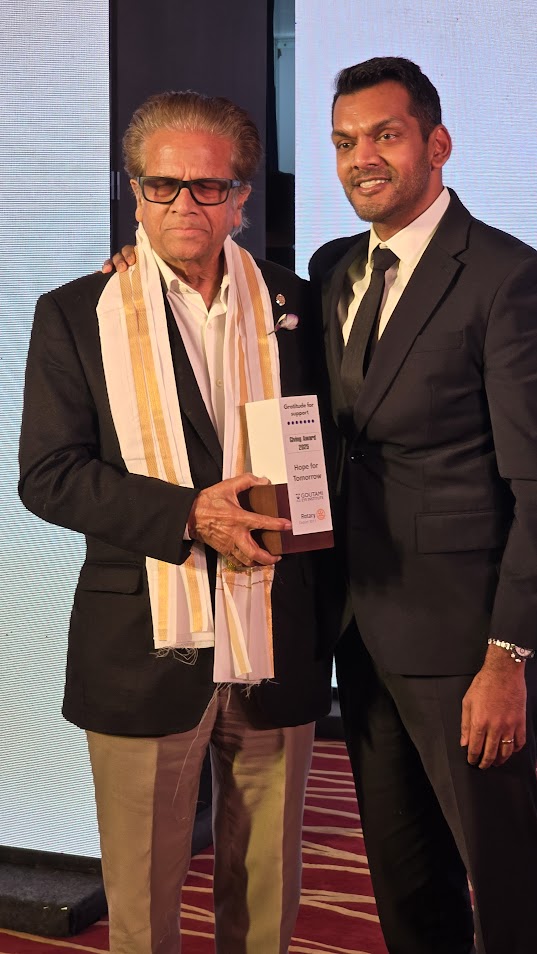 His story is one of purpose. impact, and a relentless commitment to building a brighter future for all. He was born in a rural Indian village with severe visual impairment. Today, Sam Maddula is on a mission to create a transformative impact on healthcare and society
His story is one of purpose. impact, and a relentless commitment to building a brighter future for all. He was born in a rural Indian village with severe visual impairment. Today, Sam Maddula is on a mission to create a transformative impact on healthcare and society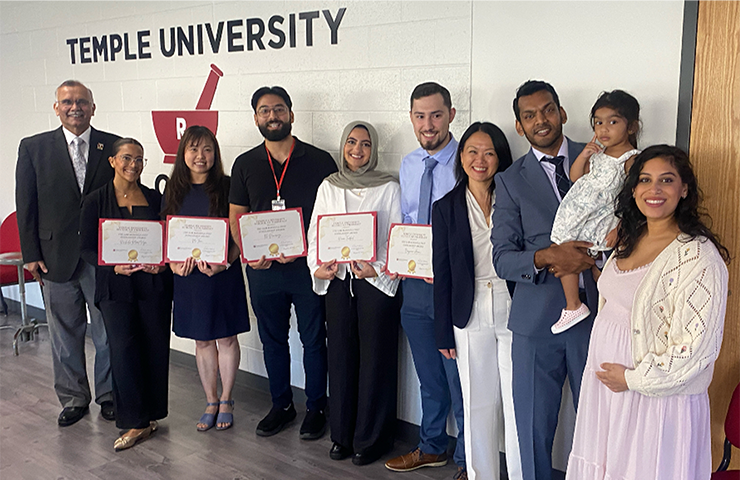 A passionate advocate for giving back, Sam has made significant contributions to organizations like the Eye Foundation of America and he continues to mentor aspiring pharmacists, fostering the next generation of leaders. He serves on the boards of numerous non-profits and civic organizations, leveraging his resources to advocate for a more equitable world
A passionate advocate for giving back, Sam has made significant contributions to organizations like the Eye Foundation of America and he continues to mentor aspiring pharmacists, fostering the next generation of leaders. He serves on the boards of numerous non-profits and civic organizations, leveraging his resources to advocate for a more equitable world Sam believes that “It is our duty to do more as we give as we get more. I am a living example of what we can be, of what can be achieved when we collectively decide to make a difference in the world. I am not a statistic. I am a human being that is here because people like you 40 years ago decided to make a difference. The next person we say from blindness might be an astronomer, a farmer, a doctor, or just an ordinary person telling you his life story, because someone decided to make a difference. You do not need to move mountains to do good. You just need to care a little bit. You don’t need to do a lot, do a little and maybe a little bit more. And before you know it, you saved a child from blindness.”
Sam believes that “It is our duty to do more as we give as we get more. I am a living example of what we can be, of what can be achieved when we collectively decide to make a difference in the world. I am not a statistic. I am a human being that is here because people like you 40 years ago decided to make a difference. The next person we say from blindness might be an astronomer, a farmer, a doctor, or just an ordinary person telling you his life story, because someone decided to make a difference. You do not need to move mountains to do good. You just need to care a little bit. You don’t need to do a lot, do a little and maybe a little bit more. And before you know it, you saved a child from blindness.”

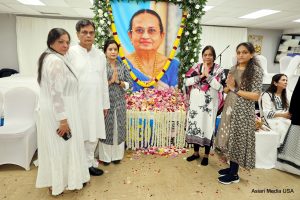
 Indo-American Press Club (IAPC) is a fast-growing syndicate of print, visual, online, and electronic media journalists and other media-related professionals of Indian origin working in the United States, Canada, and Europe. IAPC is committed to enhancing the working conditions of our journalists, exchanging ideas, and offering educational and training opportunities to our members, aspiring young journalists, and media professionals around the globe; and also by honoring media people for their excellence, and for bringing positive changes through their dedicated service among the community. Today IAPC envisages its vision through collective efforts and advocacy activities through its 15 Chapters across the US and Canada, in the larger public sphere. Visit
Indo-American Press Club (IAPC) is a fast-growing syndicate of print, visual, online, and electronic media journalists and other media-related professionals of Indian origin working in the United States, Canada, and Europe. IAPC is committed to enhancing the working conditions of our journalists, exchanging ideas, and offering educational and training opportunities to our members, aspiring young journalists, and media professionals around the globe; and also by honoring media people for their excellence, and for bringing positive changes through their dedicated service among the community. Today IAPC envisages its vision through collective efforts and advocacy activities through its 15 Chapters across the US and Canada, in the larger public sphere. Visit 









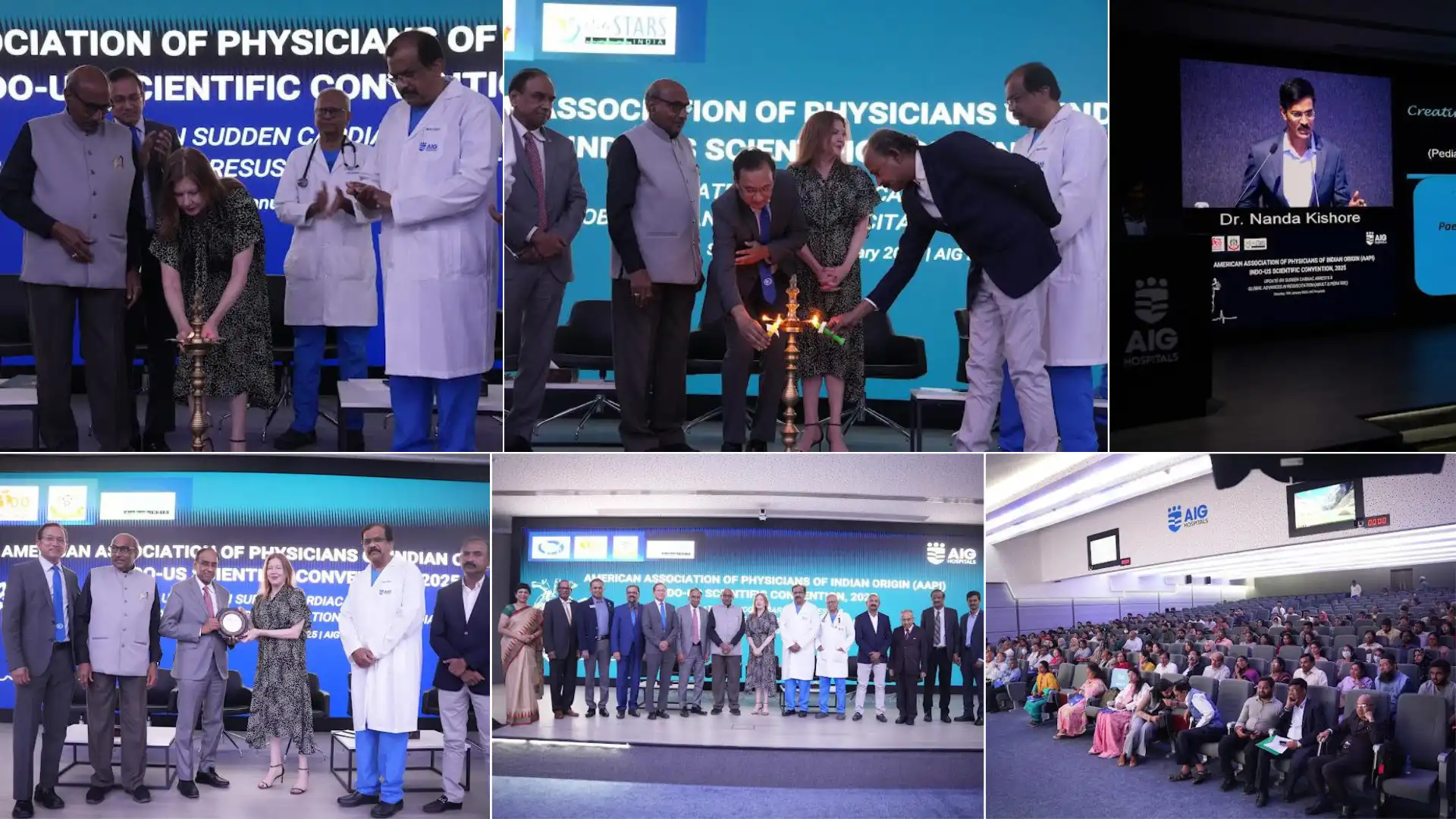 Pointing to studies, Dr. Kathula said that almost one in three in this group may die from heart disease before 65 years of age. In India, heart disease remains the number one cause of death. Common risk factors are smoking and a diet high in sugar, salt, refined grains, and fat. A large number of South Asians appear to have “insulin resistance”, a condition in which the body does not utilize insulin efficiently, resulting in Diabetes, which leads to a significant number of heart-related problems. Lack of adequate exercise, stress, and genetic predisposition are also contributing factors.
Pointing to studies, Dr. Kathula said that almost one in three in this group may die from heart disease before 65 years of age. In India, heart disease remains the number one cause of death. Common risk factors are smoking and a diet high in sugar, salt, refined grains, and fat. A large number of South Asians appear to have “insulin resistance”, a condition in which the body does not utilize insulin efficiently, resulting in Diabetes, which leads to a significant number of heart-related problems. Lack of adequate exercise, stress, and genetic predisposition are also contributing factors.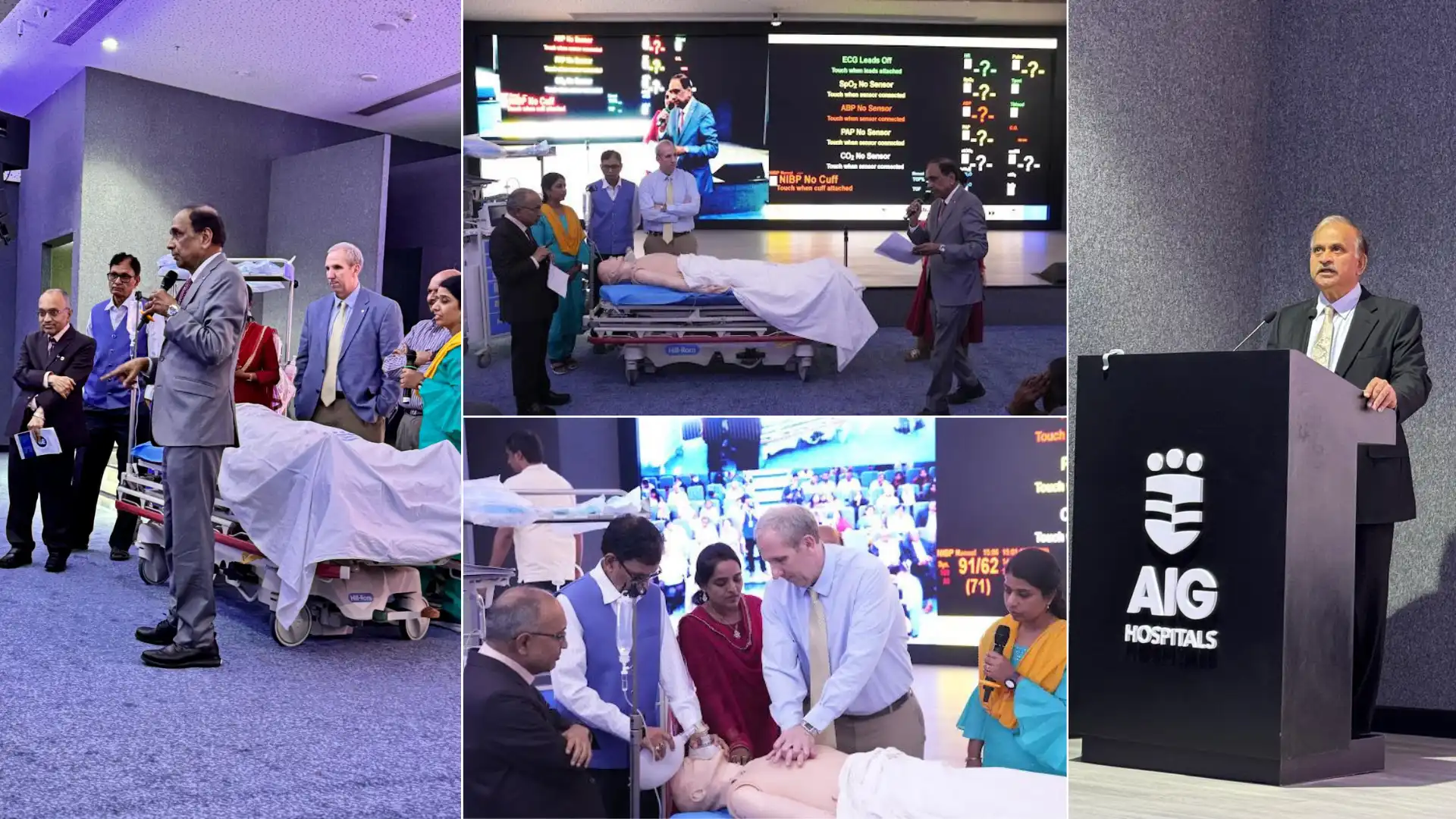 The Honorable Consul General of the U.S. in Hyderabad, Jennifer Larson, was the chief guest and spoke highly of the contributions of Indian physicians in the U.S. and their vital role in the American healthcare system. Dr. Nageshwar Reddy, chief of AIG, addressed the audience, praising AAPI’s efforts.
The Honorable Consul General of the U.S. in Hyderabad, Jennifer Larson, was the chief guest and spoke highly of the contributions of Indian physicians in the U.S. and their vital role in the American healthcare system. Dr. Nageshwar Reddy, chief of AIG, addressed the audience, praising AAPI’s efforts. “It has been a privilege to contribute to our community over the years in various capacities, and I am truly humbled to stand alongside so many remarkable individuals who share a commitment to service. I want to extend my heartfelt thanks to Commissioner Sadia Covert for her unwavering leadership and support.”
“It has been a privilege to contribute to our community over the years in various capacities, and I am truly humbled to stand alongside so many remarkable individuals who share a commitment to service. I want to extend my heartfelt thanks to Commissioner Sadia Covert for her unwavering leadership and support.” During the prayer vigil, George Abraham, Vice-Chair of the IOCUSA, spoke about his humanity and how his personal attributes have influenced a nation. “He was a man of humility despite his long resume and outstanding accomplishments at the behest of the ordinary people with whom he identified himself. He conducted himself with the highest level of integrity and honesty that was a hallmark of his life as well,” added Mr. Abraham
During the prayer vigil, George Abraham, Vice-Chair of the IOCUSA, spoke about his humanity and how his personal attributes have influenced a nation. “He was a man of humility despite his long resume and outstanding accomplishments at the behest of the ordinary people with whom he identified himself. He conducted himself with the highest level of integrity and honesty that was a hallmark of his life as well,” added Mr. Abraham Singh rose to political prominence as India’s finance minister in 1991, taking over as the country was plunging into bankruptcy.
Singh rose to political prominence as India’s finance minister in 1991, taking over as the country was plunging into bankruptcy.



 Stressing the importance of registering for the Bone Marro donation, Dr. Suni Kaza, Chair of AAPI BOT said, “You could be a patient’s only match-their only hope for a cure. When you register, you’re committing to donating to any patient in the world. But because a decision not to donate can be life-threatening to the patient, please think seriously about your commitment before joining the registry. And, be aware that there are absolutely no complications to the donor from this donation procedure.”
Stressing the importance of registering for the Bone Marro donation, Dr. Suni Kaza, Chair of AAPI BOT said, “You could be a patient’s only match-their only hope for a cure. When you register, you’re committing to donating to any patient in the world. But because a decision not to donate can be life-threatening to the patient, please think seriously about your commitment before joining the registry. And, be aware that there are absolutely no complications to the donor from this donation procedure.” Among the many initiatives Dr. Raju has undertaken, the upcoming Fundraiser in New Delhi is a pan-India Roll Out Program with the objective of raising $500,000, which will be matched by the Eye Foundation of America. The funds raised will be utilized towards establishing 100 ROP screening centers across India; Training 500 healthcare professionals in ROP screening and treatment; and, Treating 10,000 ROP-affected babies annually across India.
Among the many initiatives Dr. Raju has undertaken, the upcoming Fundraiser in New Delhi is a pan-India Roll Out Program with the objective of raising $500,000, which will be matched by the Eye Foundation of America. The funds raised will be utilized towards establishing 100 ROP screening centers across India; Training 500 healthcare professionals in ROP screening and treatment; and, Treating 10,000 ROP-affected babies annually across India.  For the past four decades, Dr. Raju and the EFA have been actively and tirelessly on a crusade to eliminate avoidable blindness in areas plagued by poverty and poor access to medical care. The EFA’s mission is to eliminate
For the past four decades, Dr. Raju and the EFA have been actively and tirelessly on a crusade to eliminate avoidable blindness in areas plagued by poverty and poor access to medical care. The EFA’s mission is to eliminate  The Goutami Institute has a wing dedicated exclusively for children, and the EFA has future plans to build a service and research eye hospital in India where no child will be denied treatment and children from around the world can come to receive services. Dr. Raju and the EFA are also committed to finding new cures for age-old eye disease in children.
The Goutami Institute has a wing dedicated exclusively for children, and the EFA has future plans to build a service and research eye hospital in India where no child will be denied treatment and children from around the world can come to receive services. Dr. Raju and the EFA are also committed to finding new cures for age-old eye disease in children.  Heart attacks remain a leading cause of death in the United States, with someone experiencing one every forty seconds. Shiny Xavier and Laicy Mecheril, two experienced Nurse Practitioners, conducted an interactive session titled “Myocardial Infarction: Timely Intervention”. They brought up the latest knowledge and evidence-based interventions in treating heart attacks. Bessy Thankavelu, another expert in the field, presented “A Perspective on Women and Heart Disease” and discussed how heart attack symptoms can differ for women, often leading to misdiagnosis and delayed treatment.
Heart attacks remain a leading cause of death in the United States, with someone experiencing one every forty seconds. Shiny Xavier and Laicy Mecheril, two experienced Nurse Practitioners, conducted an interactive session titled “Myocardial Infarction: Timely Intervention”. They brought up the latest knowledge and evidence-based interventions in treating heart attacks. Bessy Thankavelu, another expert in the field, presented “A Perspective on Women and Heart Disease” and discussed how heart attack symptoms can differ for women, often leading to misdiagnosis and delayed treatment.
 CSR has a broad range of initiatives aimed at creating a positive impact in various areas. CSR team works to establish partnerships with educational institutions, organizations, and industry experts to provide training opportunities that enhance STEM skills and knowledge. This equips individuals with the tools they need to excel in STEM careers and contributes to building a robust talent pipeline.
CSR has a broad range of initiatives aimed at creating a positive impact in various areas. CSR team works to establish partnerships with educational institutions, organizations, and industry experts to provide training opportunities that enhance STEM skills and knowledge. This equips individuals with the tools they need to excel in STEM careers and contributes to building a robust talent pipeline. Anju Vallabhaneni, President-Elect of ITServe said, “Over the years, ITServe Alliance has established a name for itself as the center point of information for its members and the larger community, covering a variety of areas ranging from immigration, technology, economy, and many more that are relevant to its members. Through our 23 Chapters across the United States, we bring resources and service to the larger humanity in every part of this innovation country.”
Anju Vallabhaneni, President-Elect of ITServe said, “Over the years, ITServe Alliance has established a name for itself as the center point of information for its members and the larger community, covering a variety of areas ranging from immigration, technology, economy, and many more that are relevant to its members. Through our 23 Chapters across the United States, we bring resources and service to the larger humanity in every part of this innovation country.”





